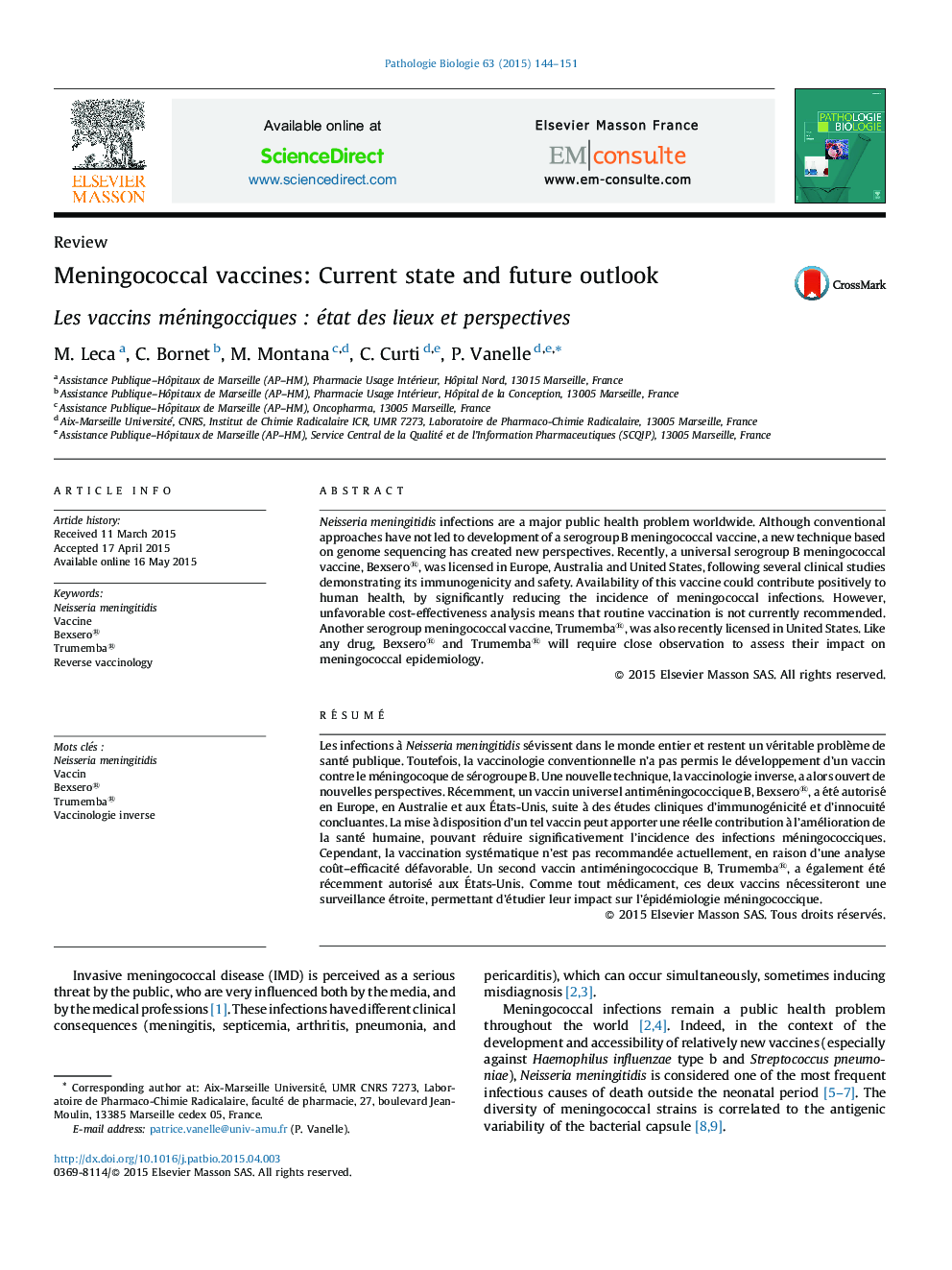| Article ID | Journal | Published Year | Pages | File Type |
|---|---|---|---|---|
| 4135891 | Pathologie Biologie | 2015 | 8 Pages |
Neisseria meningitidis infections are a major public health problem worldwide. Although conventional approaches have not led to development of a serogroup B meningococcal vaccine, a new technique based on genome sequencing has created new perspectives. Recently, a universal serogroup B meningococcal vaccine, Bexsero®, was licensed in Europe, Australia and United States, following several clinical studies demonstrating its immunogenicity and safety. Availability of this vaccine could contribute positively to human health, by significantly reducing the incidence of meningococcal infections. However, unfavorable cost-effectiveness analysis means that routine vaccination is not currently recommended. Another serogroup meningococcal vaccine, Trumemba®, was also recently licensed in United States. Like any drug, Bexsero® and Trumemba® will require close observation to assess their impact on meningococcal epidemiology.
RésuméLes infections à Neisseria meningitidis sévissent dans le monde entier et restent un véritable problème de santé publique. Toutefois, la vaccinologie conventionnelle n’a pas permis le développement d’un vaccin contre le méningocoque de sérogroupe B. Une nouvelle technique, la vaccinologie inverse, a alors ouvert de nouvelles perspectives. Récemment, un vaccin universel antiméningococcique B, Bexsero®, a été autorisé en Europe, en Australie et aux États-Unis, suite à des études cliniques d’immunogénicité et d’innocuité concluantes. La mise à disposition d’un tel vaccin peut apporter une réelle contribution à l’amélioration de la santé humaine, pouvant réduire significativement l’incidence des infections méningococciques. Cependant, la vaccination systématique n’est pas recommandée actuellement, en raison d’une analyse coût–efficacité défavorable. Un second vaccin antiméningococcique B, Trumemba®, a également été récemment autorisé aux États-Unis. Comme tout médicament, ces deux vaccins nécessiteront une surveillance étroite, permettant d’étudier leur impact sur l’épidémiologie méningococcique.
